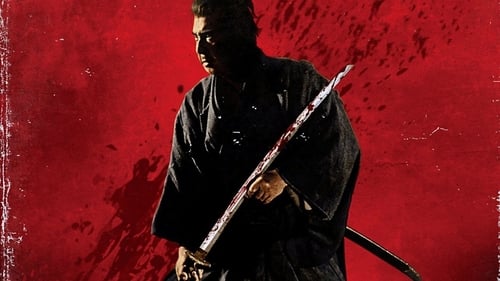
The Shogun
Há muito tempo, houve um grande guerreiro samurai que serviu honradamente seu Xogum. O Xogum porém cresceu paranóico enquanto se tornava mais poderoso. O Xogum tentou destruir todos aqueles que podiam estar se opondo à seu Estado, e por isso ele enviou o seus ninjas espiões à casa do samurai. Os ninjas não conseguiram matá-lo, mas mataram sua amada esposa. A partir daí, o samurai jurou procurar o Xogum e vingar a morte de seu amor. O samurai viajou pelo país com seu filho fazendo trabalhos mercenários pelo dinheiro, até a batalha final com o Xogum.

Genshichi
When a woman and her bridegroom are found dead in a double suicide the day after their wedding, it is up to the detective (Akira Nakao) to figure out what could possibly have motivated them. Carefully and systematically, he pieces together the inner lives of the two.
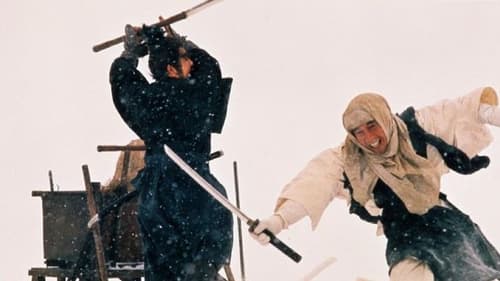
No sexto e último filme da Série Lobo Solitário e Filhote, vemos a batalha final entre Ogami Itto e o clã Yagyu.
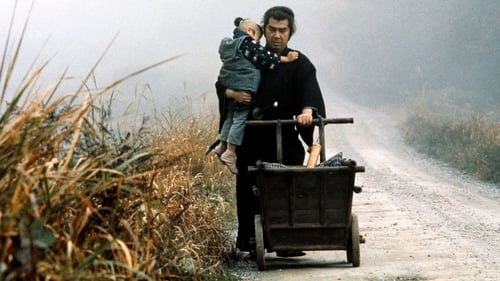
Lord Owari
Nesse quarto filme da série, o ex-executor do Shogun, Itto Ogami, é contratado para matar uma assassina tatuada, mas esse trabalho não é tão simples como ele imaginava. Enquanto isso, Gunbei Yagyu, desonrado por Ogami em um duelo antes do Shogun, acaba se deparando com o filho de Ogami, Daigoro, e vê nele a sua chance de vingança. No final, Ogami terá de derrotar uma horda de guerreiros do clã Yagyu antes que ele possa enfrentar seu arqui-inimigo, Retsudo Yagyu!
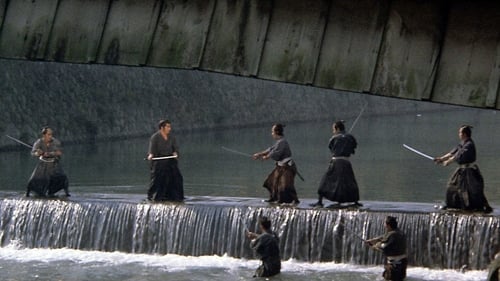
Nesse primeiro filme da série, baseada no mangá de Kazuo Koike, nos é contada a história por trás da origem do Lobo Solitário. Ogami Itto, o executor oficial do xogunato, é vítima de uma armação, feita pelo clã Yagyu, que o fez parecer desleal ao regime a que servia. Pai e filho, então, partem em uma batalha contra o clã Yagyu.

Soft-Boiled Goro is a 1970 film directed by Kazuo Ikehiro

A coward boy fencer becomes invisible and matchless through a magic pill.

BLOOD END is one of the great unknown films from Japan's golden era of the late 1960's. Starring NAKADAI Tatsuya in one of his best roles, this is the story of the Mito Tengu Group who attempted to overthrow the Shogunate at the beginning of the Bakumatsu Period. Their political aspirations led to countless assassinations, as well as senseless killing of innocent people who got in their way. Sentaro (NAKADAI), a farmer who's been severely beaten for his outspoken defiance of the government and the high taxes during a time of famine is befriended by one of the group's leaders, KADA Gentaro (KATO Go) and joins up. This is the masterpiece of director YAMAMOTO Satsuo (who is best known for the first film in the NINJA, BAND OF ASSASSINS series) the erstwhile 'Leftist' director, who used his films to make his political points. Stunning fight choreography, and ultra-violence make this one of the bloodiest films of that era. A powerful film Rare classic!

As a child, Okin the one-armed one-eyed swordswoman was disfigured by Lord Daizen-dayu, who was after her family's most treasured possession, the famed Drenched Swallow sword. As an adult, she has become a skilled swordswoman and lives a carefree life with her adopted family. One day, Okin saves a girl from a group of yakuza, and in doing so, gets involved in a grand conspiracy involving religious leaders, government officials, the yakuza and Lord Daizen-dayu, the man who killed her father and mutilated her body...

Set up to be the patsy by a rival gang, Furuta Makoto attacks the yakuza boss he thinks is responsible for his father’s murder. He then learns it was all a plot to take over his father’s turf and he seeks vengeance against the puppet master behind the entire conspiracy. His quest for justice leads him to prison where he must fend off the attack of a master assassin before he can make his escape and go after the true killer!
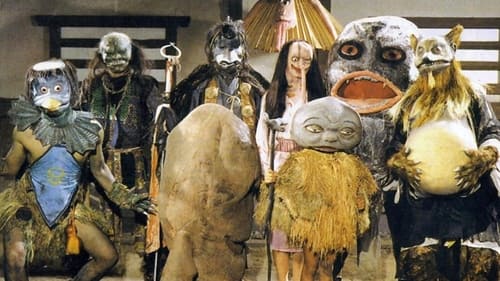
Yasuzo
When a Babylonian vampire comes to old Japan, an army of Japanese demons and ghosts gather and battle him.

Passenger A
One of the nuns at Senjuan is Sister Shunko (Michiyo Yasuda). Unlike the usual nun, however, she often goes out to see the world, being of the opinion that nuns should not lead cloistered lives but should see something of modern life. She makes the acquaintance of a young girl named lkuko (Kayo Mikimoto) and saves her from the advances of a gangster named Goro (lchiro Nakatani). In the meantime she turns down several propositions and, in revenge, one of her admirers denounces her to the Mother Superior (Kuniko Miyake). This lady is of liberal views, however, and refuses to do anything about it. Then Shunko is visited by Goro's gang boss who wants lkuko back and says he will blackmail Shunko unless she agrees.
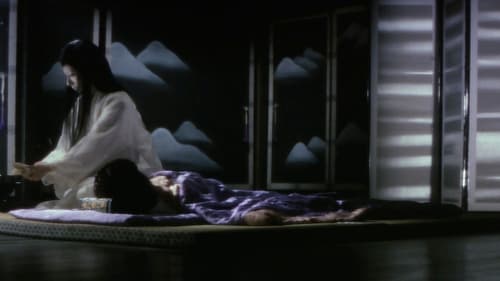
A master sculptor and his apprentice are trapped in a bad snow storm after finding a special tree for carving a statue for the local temple. Finding refuge in an abandoned hut they celebrate their luck in finding the tree but soon they are visited by the Snow Witch who freezes the sculptor to death but takes pity on the apprentice. He must promise to never speak of this or she'll return and kill him.
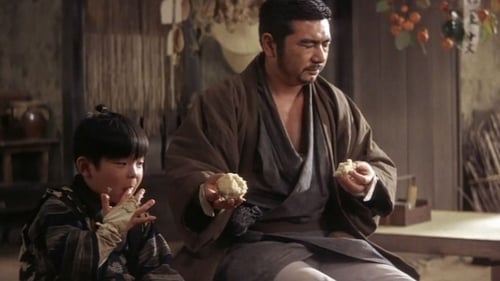
Ichi is staying at an inn when a woman dies. Her dying wish is that Ichi take her son to his father, an artist living in a nearby town. After arriving in the town, Ichi finds out that the father has been forced by a local boss to create illegal pornography to pay off his gambling debts. Ichi makes it his mission to save tha man and reunite the family, even though it brings him into conflict with a samurai he sort of befriended on his way to the town.

The disturbing story of a physician who conducted the first operation with general anaesthetic, and the women in his life who are both so determined to win his love that they volunteer as subjects for his experiments
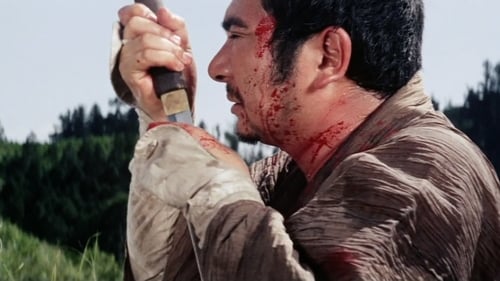
When a local gambling house kidnaps some peasants because they failed to pay their debts, a rival gambling house pays their debts and sets them free.

Third film of the yoidore hakase series
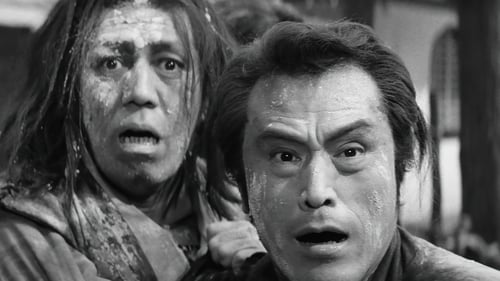
[Period Covered: 1570-1573] Towards the end of the Tenmon Era, Shogun Ashikaga`s powers were weakening by the day and many were there who planned to overthrow him. It was the beginning of the Sengoku (Warring States) period. Three men attack a gunpowder maker in a farmhouse, the first chopping off his arm with his sickle-&-chain weapon, the second blinding him with sword, the third giving the killing blow. His son Kojiro Kosume escapes the attackers as everything he has known up to then explodes into conflagration. He grows up & enters the start of the Tokugawa Era, intent on avenging his father.

Nemuri Kyoshiro discovers a conspiracy centering around a band of disgruntled samurai wanting to avenge the death of their sensei, a political reformer that pushed for better provisions for the lower classes until he was assassinated by Shogunate agents. Their plot, to set fire to the oil refineries of two rich merchants and unleash a raging inferno that will hopefully burn down the Edo Castle.
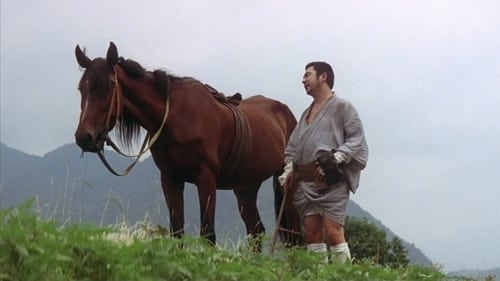
Zatoichi's trek through 88 temples to atone for his violent past is interrupted as he stumbles into a village terrorized by a violent yakuza boss.
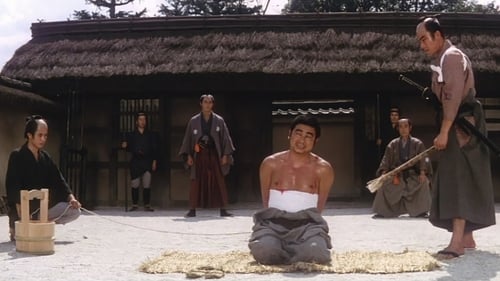
Blind swordsman Zatoichi, jailed briefly, is implored by another prisoner to aid him in proving his innocence of a crime for which he is sentenced to death. Zatoichi is reluctant to get involved, because he knows how often such involvement has led to trouble in the past. But events conspire to thrust him repeatedly into involvement, and gradually he comes to believe in the man's innocence and determines to free him.

The further adventures of Takeshi Nanjo, the Young Boss.

Abare inu is a 1965 action-comedy film directed by Kazuo Mori. It is the fourth film in the series.

Ronin samurai Ibuki-san enters a town and sells his skills to the warring families. He falls in love with the beautiful horse stable owner but like all heroes, cannot stay.
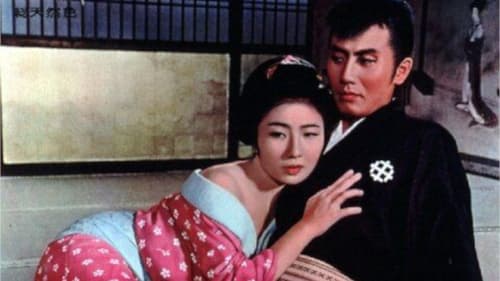
A fugitive christian "saint" (female, of course!) and a sadistic drug-addled princess both have their eye on Kyoshiro. The fact that a bunch of ruthless smugglers also want him dead is the least of his problems!

A decapitation at the hands of the shogun's monstrous misbegotten son kicks off the action and draws nomadic Nemuri Kyoshiro (Raizô Ichikawa) into more sword-fighting adventures when he's blamed for the beheading. Meanwhile, the head-chopper's mother is busy knocking off the shogun's lawful heirs to secure the shogunate for her son.

Yoso is truly a lost classic, set in the Nara Era (710-794), from Kinugasa Teinosuke the same writer/director who gave us the recognized classic Gate of Hell (Jigokumon, 1952) & the milestone silent surrealist masterpiece A Page of Madness (Kurutta Ippeji, 1926).
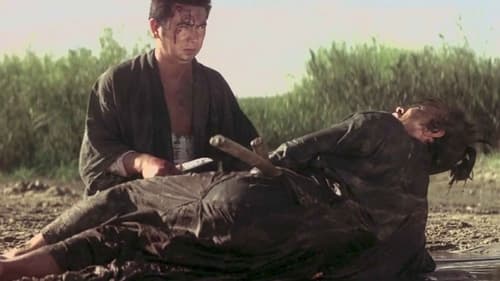
After arriving in the town of Shimonita, Ichi finds that a price has been put on his head by a local yakuza boss. He's drawn into a trap, but after hearing of the slaying of a former love, Ichi furiously fights his way through the entire clan to face the killer, a hired ronin.
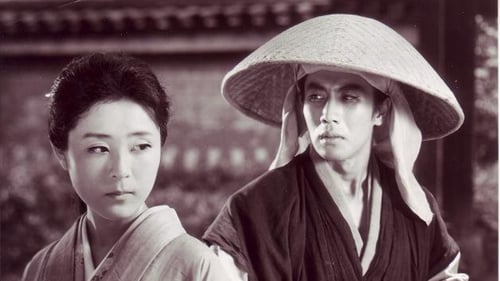
[Period covered: 1582-1594]. As the film opens, the warlod Nobunaga Oda rides to Iga Ayanokuni shrine. He is asked if he thinks he has destroyed all the ninja who opposed him and answers that he suspects that there may be more. A servant brings water and tests it first. The paige dies and we hear gunshots as two ninja flee the scene. His suspicions confirmed, Nobunaga oversees the execution of captured ninja and decides that, in the future, he needs a much crueler method of execution. The daimyo Hideyoshi comes to visit.
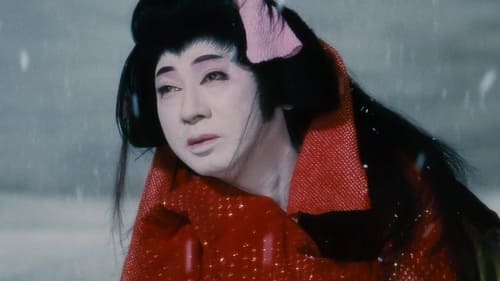
Em uma excursão com seu grupo de teatro kabuku, Yukinojo, ator principal da trupe, acaba cruzando com os três homens que levaram seus pais ao suicídio, 20 anos antes. Yukinojo então trama sua vingança, primeiro seduzindo a filha de um deles e depois os levando à ruína.
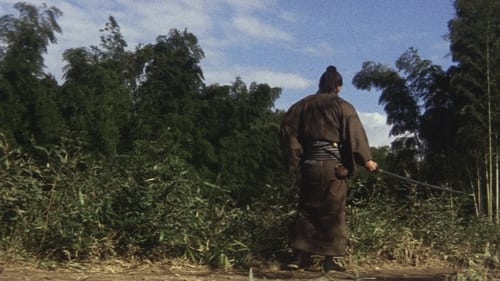
As winds of change sweep Japan, an honest man joins the Shinsenhumi out of admiration for its leader and because he wants to live and die as a samurai. However, as his involvement grows, reality and idealism come into deadly conflict.
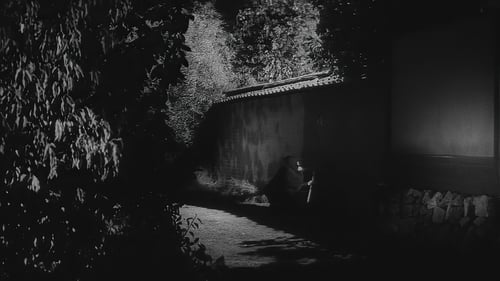
Warlord Oda Nobunaga seeks to unite a fractured Japan. A young man trained in the arts of ninjitsu is manipulated by a ninja master into attempting to assassinate the warlord before he completes his task.
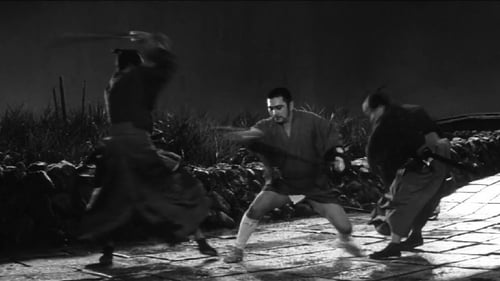
Returning to the village where a year before he had killed Hirate, a much-admired opponent, Zatoichi encounters another swordsman and former rival in love.

The Fencing Master tells the story of a man trying to survive as the only world he knows is becoming increasingly irrelevant. Danpei Ichikawa lives for swordfighting – he was once a renowned kabuki swordfight choreographer, and as the Chairman of the New National Theatre Company, he wants nothing more than to choreograph the swordfights for the modern plays put on by the company.
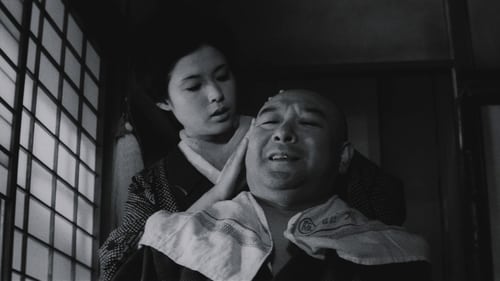
Jirô Ebisugawa
Satoko is a mistress by trade or fate: when her master, the silkscreen artist of the Kohoan Temple in Kyoto, dies, she is given to the temple's lascivious head priest Kikuchi. She is drawn to a melancholy young acolyte, Jinen, who has observed the profligacy of his cruel master and Satoko's utter dependence on the man. Jinen is both fascinated and disturbed by Satoko's interest in him; he is similarly caught between loathing of Kikuchi and of the dark circumstances of his birth and his own moral weakness. The story unfolds in a dreamlike manner—a flashback inspired by a now-infamous image on a silkscreen in the souvenir shop at the so-called Temple of the Wild Geese.

Um príncipe indiano deixa seu mundo de conforto e riquezas para vagar e meditar por seis anos em busca de iluminação espiritual. Siddartha (Cojoin Hong) vira as costas à velha religião quando as pessoas estão morrendo de fome desnecessariamente e os rituais sagrados incluem sacrifícios humanos. Durante suas meditações, ele é tentado por dançarinas eróticas, demônios e as maquinações malignas de seu primo criminoso. Devastate para atingir a perfeição espiritual e se tornar o Buda. Ele viaja para converter seguidores por sua bondade e sabedoria, ganhando uma multidão de crentes quando impede um elefante de esmagar um padre local. É claro que Buda se tornou um dos grandes líderes religiosos do mundo.


One of Japan's most popular stories is the tale of Kutsukake Tokijiro, a traveling gambler who finds that he must take care of the wife and child of a yakuza he had been forced by the code of the gamblers to fight man to man. In a brilliant performance from super-star Ichikawa Raizo, with strong support from two of the greats from Toho, Shimura Takashi (7 Samurai) and Aratama Michiyo (Sword of Doom) the heartfelt story reaches new heights. Tokijiro, having learned the true nature of the boss to whom he was obligated for having spent a night and eaten at the gang's headquarters takes up arms against them in a running battle fought across the back roads of the entire nation. Another powerful rendition of this superb story, it is not to be missed!

Disguised as a beggar monk, Ryunosuke is harassed along the road by the rowdy members of a country dojo or fencing school malingering outside their fencing hall. The third film in the Satan's Sword trilogy.
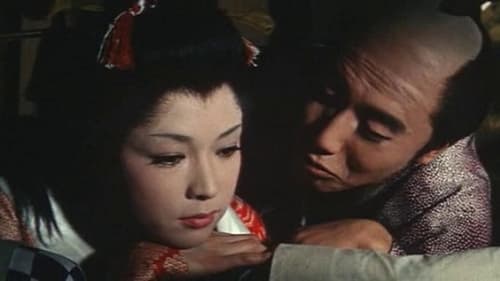
Fascinated with women from an early age, Yonosuke had his first sexual encounter at the age of seven. From that day on, he recklessly and forwardly pursues women, feeding his fascination and experience. As Yonosuke's salacious behavior brings much cause for shame to the family, his father eventually breaks relations with him. Expelled from the family, 19-year-old Yonosuke embarks on a pilgrimage of lust, traveling far and wide to acquaint himself with women of all walks.

This is the story of a blind masseur who tricks people, steals, and kills; he is the anti-Zatoichi

The exciting story of Jirocho and his yakuza gang that controlled the area of the Tokaido during the latter days of the samurai era. Awesome fighting from Katsu Shintaro as One-Eyed Ishimatsu highlights this great tale taken from Japanese history!
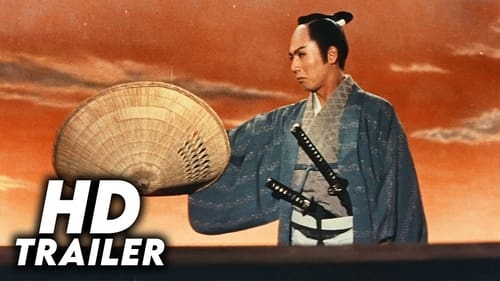
Two amiable samurai wind up on opposite sides of the vendetta between Lord Asano's retainers and the family of Lord Kira that led to the famous revenge of the 47 Ronin.

Katsunosuke Ichikawa
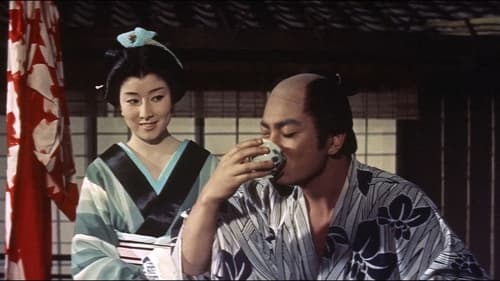
Legendary yakuza Shimizu Jirocho and his 28 henchmen travel the unruly path from a 'Fire Festival' in Akiba to a decisive battle by the Fujigawa.

Sonroku Masaki

Film directed by Kenji Misumi.

The film won 1959 Blue Ribbon Awards for best actor Raizo Ichikawa and for best cinematography Kazuo Miyagawa. The film also won 1959 Kinema Junpo Award for best actor Raizo Ichikawa.

Utaji heard that her ex-lover Seijirou would get married to Ochiyo a daughter of Ise-ya. She murdered Ochiyo and took over the Ise-ya's shop with Hikoroku a head clerk of Ise-ya. Moreover Utaji killed Hikoroku. But...
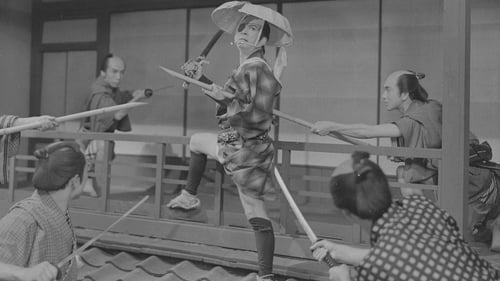
Ichizo
Ishimatsu of Mori, from his early days leading up to his joining with Shimizu Jirocho, Boss of the Tokaido where he made his mark in history through his tragic end this is the story of a beloved and loyal henchman.

Period drama based on the novel by Saisei Murō.
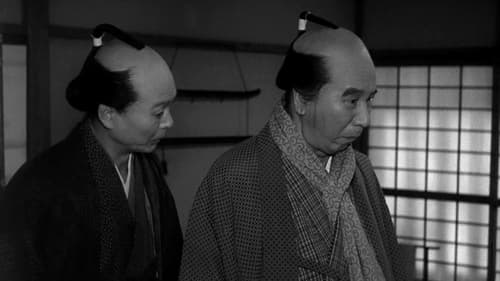
Worker
No século XVII, esposa de um rico avarento vive insatisfeita e frustrada, e quando precisa de dinheiro para ajudar o irmão, recorre a um dos empregados do marido. Os dois são descobertos, mas o rapaz assume a culpa para salvá-la. Sabendo das traições do marido, ela decide arriscar tudo e fugir com o empregado.
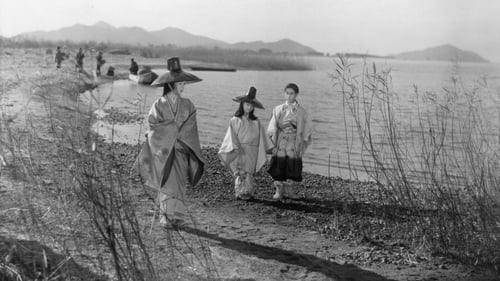
Harbour's man
Japão, século XI. A família de Taira é separada pelas lideranças feudais. Seus dois filhos, Zushiô e Anju, são enviados para um campo de trabalho escravo comandado pelo temido Sanshô, enquanto sua esposa, Tamaki, é forçada a prostituir-se em uma região isolada. (e 12 - Estimado 12 Anos)
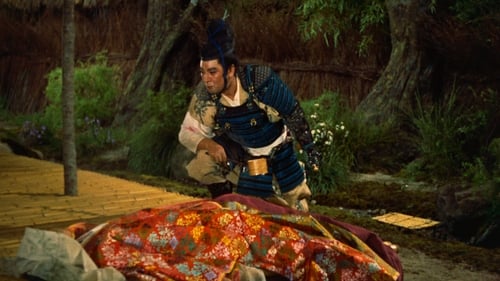
Tadamitsu
Em 1159, durante uma tentativa de golpe contra a realeza, arma-se um plano para que a família real possa fugir. Uma senhora da corte aproveita a situação e se faz passar de esposa de um Lorde para sair da cidade. Ela conta com a ajuda de um samurai, que a escolta com segurança. Mais tarde, o samurai pede ao Lorde como recompensa a mão desta mulher em casamento. Mas ele descobre que ela já é casada. O samurai não irá desistir e chegará a desafiar o marido de sua amada para que a deixe, o que irá gerar trágicas consequências.










































